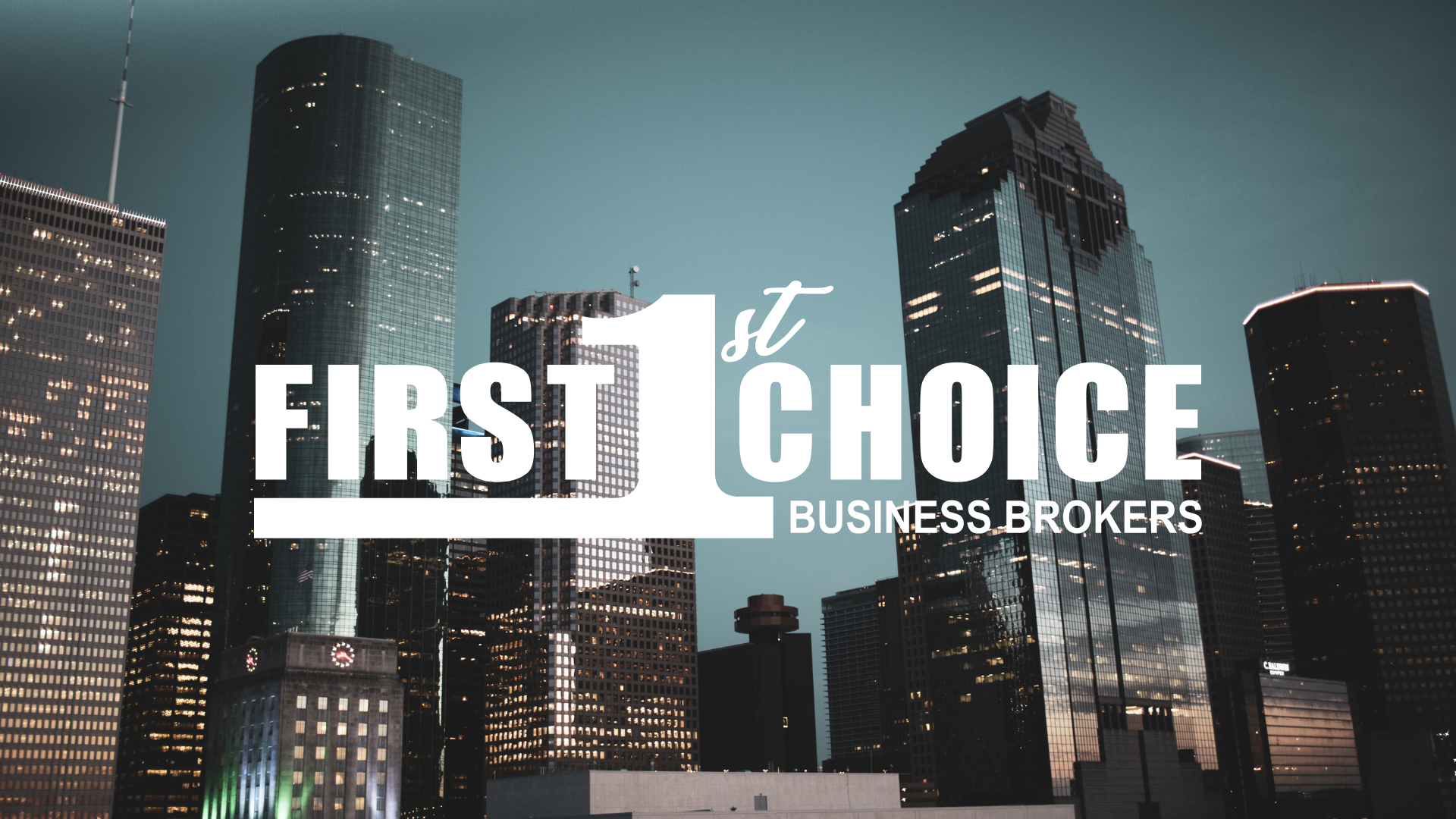Harness Seasonal Branding with First Time Business Brokers to Woo the Ideal Buyer
In the sprawling city of Houston, small businesses are the lifeblood of its dynamic economy. From quaint cafes in historic neighborhoods to innovative tech startups in downtown hubs, the city thrives on the entrepreneurial spirit. But as the market evolves, so do the strategies needed to stay competitive, especially when it's time to hand over the reins.
Enter seasonal branding, a trend that's revolutionizing the way businesses present themselves. By tapping into the emotional connection of seasons, businesses are creating relatable narratives, enhancing their appeal to prospective buyers. And who better to navigate this transformative journey than First Choice Business Brokers?
With their unparalleled expertise and commitment, they are reshaping the way businesses in Houston are being positioned for sale, ensuring that the legacy of these enterprises is passed onto buyers who truly resonate with their essence.
Houston's Thriving Small Business Scene
Houston, often dubbed the 'Energy Capital of the World', is not all about oil and gas. The city's vibrant economy is a melting pot of diverse sectors, from tech to healthcare, and at its heart lie the small businesses, each echoing the resilience and entrepreneurial spirit of Houstonians.
The Bayou City's allure for small businesses stems from several factors. A favorable economic climate, coupled with a lower cost of living compared to other major American cities, makes Houston an attractive destination for startups and established businesses alike. Furthermore, its diverse demographic provides a wide customer base, allowing businesses to cater to a multifaceted audience.
However, the very dynamism that makes Houston a hotspot also poses challenges. With an ever-evolving market, businesses must continuously innovate and adapt to stay relevant. When it comes to selling, the stakes get even higher. Sellers must ensure that their business stands out in a sea of opportunities, enticing the right buyers who not only see the financial potential but also understand and appreciate the business's cultural and brand ethos.
Yet, the rewards of navigating this dynamic market successfully are immense. Achieving a profitable sale in Houston means passing on your business to someone who will honor its legacy and continue its growth trajectory. And with the right strategy, such as leveraging seasonal branding, and the guidance of experts like First Choice Business Brokers, selling a small business in Houston can be a fulfilling and lucrative venture.
Diving Deep into Seasonal Branding
Seasonal branding is more than just a passing trend; it's a strategic approach that resonates deeply with consumers. At its core, seasonal branding is about aligning a business's messaging, products, and overall branding with the changing seasons or specific holidays. It's about capturing the spirit of the moment and connecting with customers on a more emotional and relevant level.
Imagine walking through a street in December, and you come across a café adorned with twinkling lights, offering special winter lattes and treats. Or during spring, a floral shop emphasizing fresh spring blossoms and promoting DIY bouquet workshops. These are examples of seasonal branding in action, where businesses curate experiences that mirror the emotions and activities of the season.
So, why is this strategy becoming indispensable, especially for businesses on the selling block? Firstly, it showcases adaptability. A business owner who can evolve with the seasons demonstrates flexibility and a keen understanding of market dynamics. Secondly, it provides a fresh perspective. Seasonal branding keeps things new and engaging, so the business doesn't stagnate or seem outdated; a significant selling point for potential buyers, who are looking for ventures that understand the pulse of the market.
For sellers integrating seasonal branding, they paint their business in a favorable light. It can indicate profitability, relevance, and a deep connection with the customer base. In the eyes of potential buyers, especially those introduced by First Choice Business Brokers, this can significantly elevate the business's appeal, setting the stage for a successful sale.
Your Key to the Perfect Sale
In the intricate dance of selling a business, finding the right partner can be the difference between a smooth sale and a missed opportunity. Enter First Choice Business Brokers, a trusted name synonymous with successful, tailored business transactions in Houston.
One of the standout benefits of partnering with First Choice Business Brokers is their in-depth market knowledge. Passionate about achieving your business goals, they are business connoisseurs who understand the nuances of Houston's small business landscape. The outcome is a business paired with the right buyer who recognizes its value and potential.
But it's not only about financial transactions.
Selling a business, especially a small one, can be deeply personal. Owners invest years, if not decades, into building their venture, cultivating its culture, and nurturing its reputation. For many business owners, ensuring the incoming buyer respects and cherishes this legacy is paramount. First Choice Business Brokers excel in this arena. Their comprehensive vetting process is designed to match businesses with buyers who bring capital and a deep-seated respect for the existing culture and ethos.
Furthermore, their advocacy for innovative strategies, such as seasonal branding, showcases their forward-thinking approach. They understand that in today's market, it's not just about numbers; it's about narratives. A well-branded business that leverages seasonal trends can be incredibly appealing to buyers, as it demonstrates adaptability, customer engagement, and market relevance.
First Choice Business Brokers are more than just intermediaries; they are strategic partners. Their mission goes beyond transactions; it's about transitions – ensuring that businesses move into the hands of buyers who are genuinely invested in their future and the legacy they inherit.
Seasonal Branding: A Magnet for the Right Buyer
A business for sale, will showcase profit, and growth potential, and paint a vivid picture of a brand's identity. Seasonal branding has emerged as a powerful tool. By tapping into the rhythmic pulse of the calendar year, businesses can resonate deeply with a target audience, forging stronger emotional connections. For potential buyers, this demonstrates adaptability, foresight, and an innate understanding of the market's pulse.
Consider the story of a Houston-based café that leaned into autumn branding. As the fall season approached, they introduced pumpkin-spiced beverages, decorated their interiors with warm-toned autumn leaves, and initiated fall-themed events. The effort was not just a marketing strategy; but a reflection of their cozy, community-centric culture. When the owner listed the business for sale, it caught the attention of a buyer seeking a café with a strong sense of community and adaptability. The seasonal branding boosted immediate sales and became a pivotal point in the sales negotiation, emphasizing the brand's ability to innovate and connect.
Another instance is a boutique in Houston that embraced winter holiday branding. Their festive displays, limited-time product lines, and holiday events demonstrated a deep connection with their customers. This alignment of business strategy with seasonal sentiments is crucial in attracting a buyer who values this proactive and customer-centric approach.
In both examples, seasonal branding wasn't just about temporary boosts in sales; it was about conveying a business's ethos, culture, and adaptability. For sellers, this strategy can be instrumental in attracting buyers who see the financial value and invest in the business's cultural fabric.
Maximizing Sale Potential: Tips from First Choice Business Brokers
Navigating the intricacies of selling a small business in Houston's bustling market requires a strategic blend of innovative tactics and industry expertise. First Choice Business Brokers (FCBB) emphasizes the significant edge branding strategies offer.
Their top tip:
consistency. Seasonal branding will amplify engagement when it seamlessly integrates with the overall brand narrative. Advice from FCBB is to start early, allowing adequate time for branding efforts to resonate and yield measurable results, showcasing the business's adaptability and forward-thinking approach to potential buyers.
Beyond Branding: Holistic Services of First Choice Business Brokers
While First Choice Business Brokers champions the power of branding, their offerings extend far beyond. From conducting comprehensive business valuations to leveraging a vast network of potential buyers, FCBB ensures that every aspect of the sales process is optimized. Their holistic approach accounts for the uniqueness of each business, emphasizing tailored strategies that enhance visibility and ensure that the business owner finds the right buyer, one who genuinely values its culture and potential. In the complex dance of selling a business, FCBB emerges as a trusted choreographer, guiding business owners every step of the way.
Conclusion
In the vibrant tapestry of Houston's small business landscape, seasonal branding emerges as a shimmering thread, weaving a narrative that resonates with potential buyers. It's not just about selling a business; it's about ensuring it's passed onto hands that truly value its essence and culture. In this nuanced journey, First Choice Business Brokers stand out as invaluable guides, merging their deep market insights with the power of innovative branding. The collaboration of these elements - the dynamism of Houston, the allure of seasonal branding, and the unmatched expertise of First Choice Business Brokers - promises a sale that's profitable, and purposeful.
Frequently Asked Questions
If you are considering selling your business in the future make certain that a buyer can verify your income. Most buyers will walk away from a transaction if the income cannot be verified. Your First Choice Business broker can advise you in more detail as to what a buyer will need from you when you are ready to sell.






